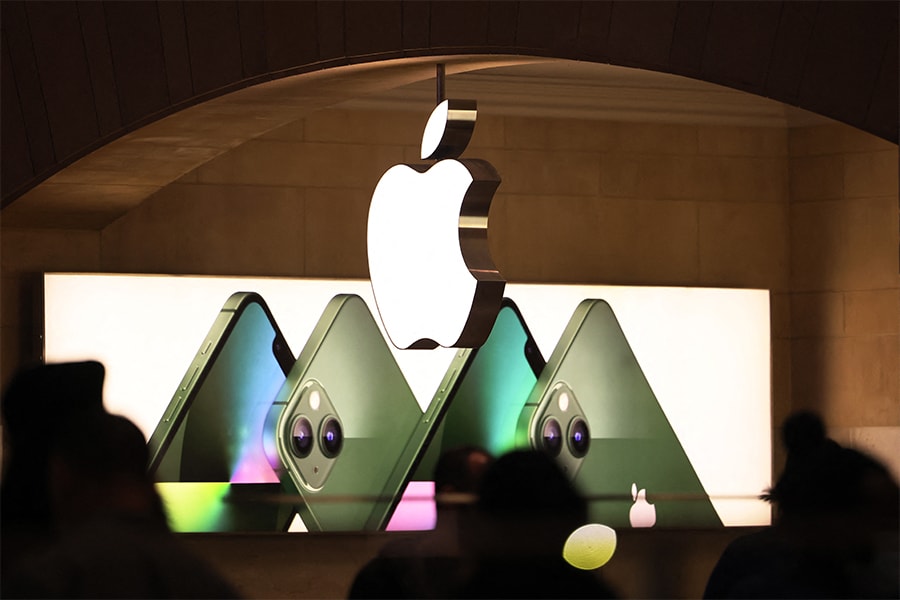
Apple growth slows but more resilient than tech peers
The company reported Thursday that profit rose 6% to $25 billion in its second fiscal quarter, a slowdown from the double-digit growth in each of the previous five quarters. Sales increased 9% to $97.29 billion
 After a year of blistering sales growth, Apple showed that it has a more resilient business than many of its tech peers, even though it cooled off in the first three months of the year
Image: Michael M. Santiago / Getty Images via AFP
After a year of blistering sales growth, Apple showed that it has a more resilient business than many of its tech peers, even though it cooled off in the first three months of the year
Image: Michael M. Santiago / Getty Images via AFP
After a year of blistering sales growth, Apple showed that it has a more resilient business than many of its tech peers, even though it cooled off in the first three months of the year.
The company reported Thursday that profit rose 6% to $25 billion in its second fiscal quarter, a slowdown from the double-digit growth in each of the previous five quarters. Sales increased 9% to $97.29 billion, exceeding analysts’ expectations, as pandemic-fueled purchases of iPads and Macs slowed from a year earlier.
Tim Cook, Apple’s CEO, cautioned investors about the months ahead, telling Wall Street analysts that an accelerating COVID outbreak in China will curtail demand and impair production of iPhones, iPads and Macs. He said the supply-chain troubles are expected to reduce sales in the current quarter by $4 billion to $8 billion.
“I think we’re doing a reasonable job currently navigating what is a challenging environment,” Cook said, noting that “almost all” of the factories Apple relies on in the Shanghai region have restarted production.
The company’s shares fell about 4% in after-hours trading, giving up much of Apple’s gains earlier in the day.
©2019 New York Times News Service







